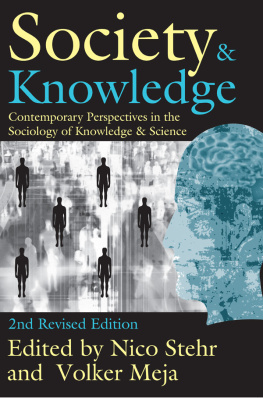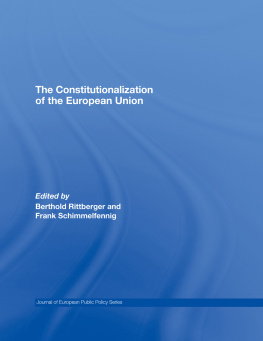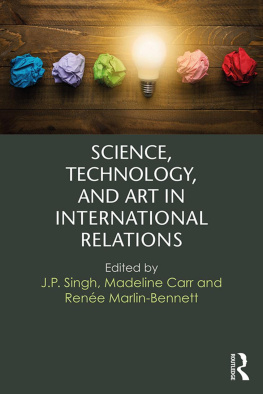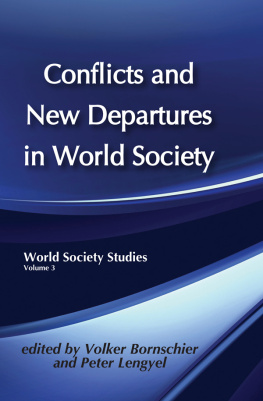Volker Rittberger - Science And Technology In A Changing International Order
Here you can read online Volker Rittberger - Science And Technology In A Changing International Order full text of the book (entire story) in english for free. Download pdf and epub, get meaning, cover and reviews about this ebook. year: 2019, publisher: Routledge, genre: Politics. Description of the work, (preface) as well as reviews are available. Best literature library LitArk.com created for fans of good reading and offers a wide selection of genres:
Romance novel
Science fiction
Adventure
Detective
Science
History
Home and family
Prose
Art
Politics
Computer
Non-fiction
Religion
Business
Children
Humor
Choose a favorite category and find really read worthwhile books. Enjoy immersion in the world of imagination, feel the emotions of the characters or learn something new for yourself, make an fascinating discovery.

- Book:Science And Technology In A Changing International Order
- Author:
- Publisher:Routledge
- Genre:
- Year:2019
- Rating:5 / 5
- Favourites:Add to favourites
- Your mark:
- 100
- 1
- 2
- 3
- 4
- 5
Science And Technology In A Changing International Order: summary, description and annotation
We offer to read an annotation, description, summary or preface (depends on what the author of the book "Science And Technology In A Changing International Order" wrote himself). If you haven't found the necessary information about the book — write in the comments, we will try to find it.
Science And Technology In A Changing International Order — read online for free the complete book (whole text) full work
Below is the text of the book, divided by pages. System saving the place of the last page read, allows you to conveniently read the book "Science And Technology In A Changing International Order" online for free, without having to search again every time where you left off. Put a bookmark, and you can go to the page where you finished reading at any time.
Font size:
Interval:
Bookmark:



52 Vanderbilt Avenue, New York, NY 10017
2 Park Square, Milton Park, Abingdon, Oxon OX14 4RN
Product or corporate names may be trademarks or registered trademarks, and are used only for identification and explanation without intent to infringe.
United Nations Conference on Science and Technology for Development (1979:
Vienna, Austria)
Science and technology in a changing international order.
(Westview special studies in social, political, and economic development)
"Published for the United Nations Institute for Training and Research."
Includes bibliographical references and index.
1. Underdeveloped areasScienceCongresses. 2. Underdeveloped areas
TechnologyCongresses. 3. ScienceInternational cooperationCongresses.
4. TechnologyInternational cooperationCongresses. 5. ScienceSocial aspects
Congresses. 6. TechnologySocial aspectsCongresses. I. Rittberger, Volker.
II. United Nations Institute for Training and Research. III. Series.
Q127.2.U557 1979 338.9 81-11375
ISBN 0-86531-146-3 AACR2
- ii
- iii
- iv
Font size:
Interval:
Bookmark:
Similar books «Science And Technology In A Changing International Order»
Look at similar books to Science And Technology In A Changing International Order. We have selected literature similar in name and meaning in the hope of providing readers with more options to find new, interesting, not yet read works.
Discussion, reviews of the book Science And Technology In A Changing International Order and just readers' own opinions. Leave your comments, write what you think about the work, its meaning or the main characters. Specify what exactly you liked and what you didn't like, and why you think so.










